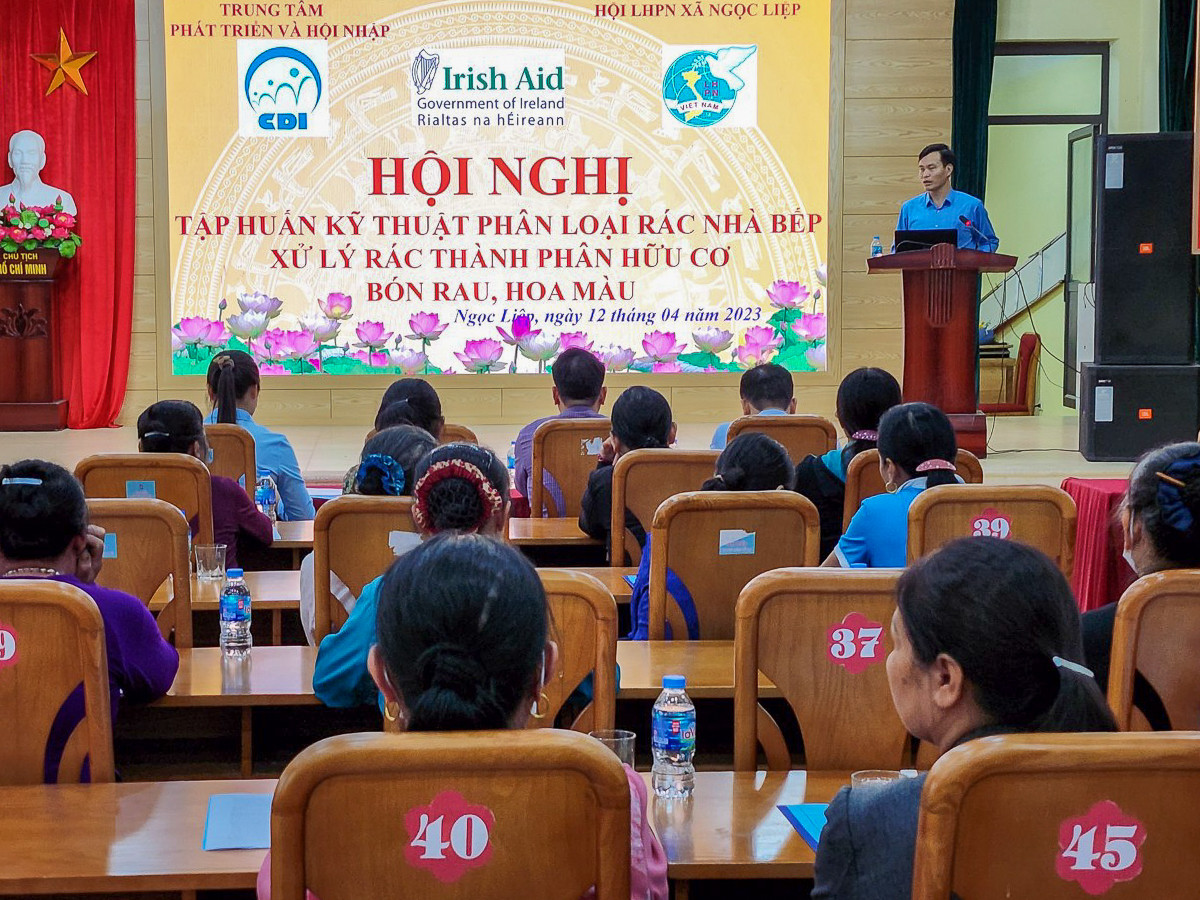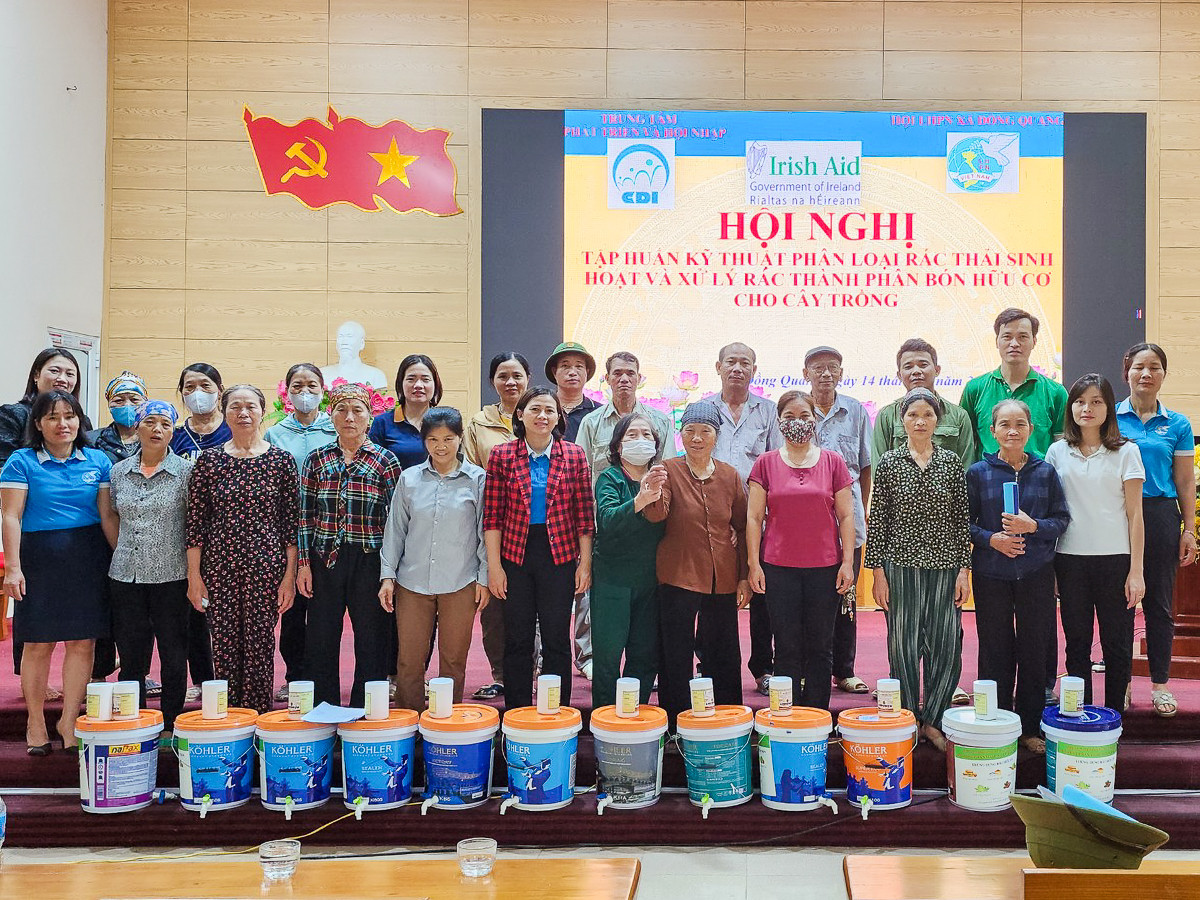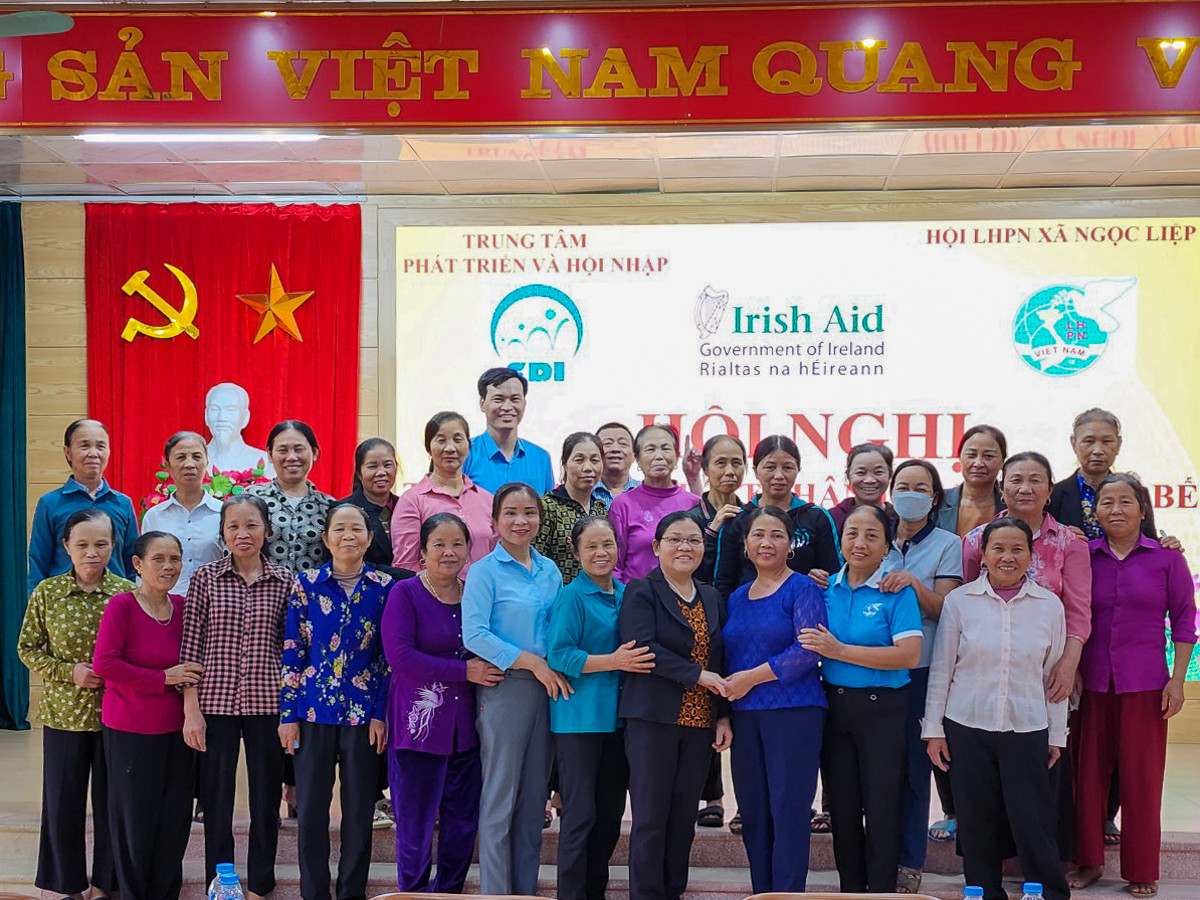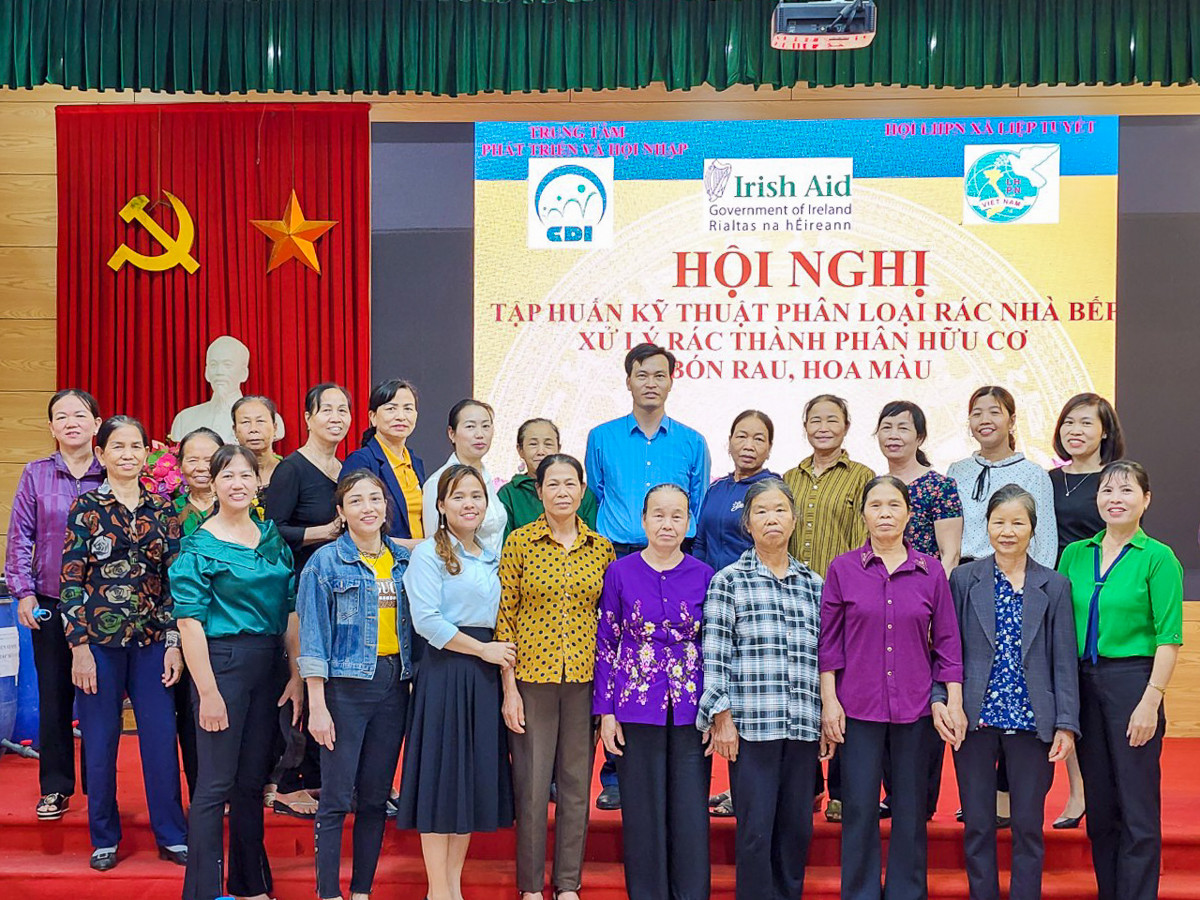Application of microorganisms in sustainable agricultural cultivation in Quoc Oai district, Hanoi
Environmental pollution is a burning problem not only for developing countries but also for many developed countries. In Vietnam, the pollution situation is getting worse and worse. Nowadays, the amount of domestic waste that is being mixed and dumped directly into the environment is increasing in quantity and creating a great pressure on the collecting and handling sectors. Nationwide, the amount of domestic waste in urban areas generates 35,000 tons per day with a collection and treatment rate of more than 85%. This figure in rural areas is 28,000 tons per day and only collects about 55% of the total waste (Vietnam national environment report 2016-2021).
According to estimated data, the country generates more than 60,000 tons every day, however, only about 15% of the collected waste is recycled or reused. The rest is buried in landfills, discharged into open water or burned. Realizing that solid waste is a great resource if we classify and treat it properly, in 2022, the Center for Development and Integration, under the sponsorship of Irish Aid, coordinated with the Dan Phuong District Farmers’ Association and the Women Association in Quoc Oai district, have developed over 200 of organic waste classification and application of microorganisms models to treat waste as organic fertilizer across five Northen Vietnam communes.
After one year of implementation, up to now, the models have shown good results, the total amount of organic waste classified and treated is estimated at up to 30 tons, after composting, about 6 tons of organic fertilizer have been produced. These practical activities have greatly contributed to reducing environmental pollution, reducing waste collection and transportation costs, and at the same time helping farmers reduce their dependence on chemical fertilizers.

In order to promote the movement of sorting and treating organic waste as fertilizer for crops, the Center for Development and Integration cooperates with the Women’s Union of Quoc Oai district to organize training sessions on classifing and treating organic waste as fertilizer for people in Ngoc Liep, Liep Tuyet, Dong Quang, Nghia Huong, Dong Xuan communes of Quoc Oai district, Hanoi from April 12nd to 14th, 2023. After the 3-days workshop, 230 participants, including households who have been sorting organic waste at home, understood the role and meaning of waste separation at source, know how to apply microorganisms in organic waste treatment as fertilizer, and at the same time can make use of other agricultural by-products to compost to bring value and efficiency.
The trainees also taught how to make organic fertilizer from locally available natural seafood such as how to compost fish, compost snails as fertilizer. These are fertilizers with high nutritional value and suitable for a variety of plants. By applying this practice, farmers will produce nutritious products at very low prices, contributing to increasing income for farmers. In addition, the particiants were also instructed to share their experiences in producing fertilizers from seeds such as composting from soybeans, peanuts, etc. and how to make pesticides from locally available herbs such as garlic, chili, ginger, galangal, lemongrass, etc. contribute to minimizing the use of fertilizers and toxic plant protection chemicals in production.



